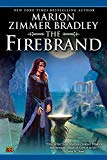
In the original story found in the Iliad , female characters receive little attention; although they are often crucial to progressing events, they have no developed identities of their own, and are instead defined by motherhood, wifehood, and sisterhood. Cassandra is described in that story as "the loveliest of [Priam's] lovely daughters," but does not speak at all. Today she is remembered for portending the city's doom and for not being believed by its inhabitants, who think she is mad. On ancient Greek pottery she is depicted as half naked with long, wild hair, and Shakespeare's 1602 play Troilus and Cressida characterizes her as an insane woman. After the Akhaians use the Trojan Horse to enter Troy, the Aeneid and other accounts relay how Cassandra is raped by Ajax, is taken captive by Agamemnon, and is later killed with him by his angry wife Clytemnestra. By setting her story from the female perspective, Bradley gives women—especially the formerly silent Cassandra—a voice. Here, Kassandra is depicted as a strong and insightful woman rather than as a lunatic, yet she is still misunderstood by many of those around her. She is allowed to survive Klytemnestra's wrath to record a female counter-narrative.
The Firebrand employs similar themes to Bradley's other works, including the reversal of gender roles where "women are the true heroes" while the "proud, arrogant" men who lead Troy to doom "fail to invoke the reader's sympathy". The novel's title refers to Paris and the destruction he brings to Troy. The Firebrand has been perceived as belonging to the revisionist history genre, as it fits into a "reinvent[ion of] stories that are either historical or derived from myth/legend but often taken to be historical," and then told with a different narrative. The novel has also been seen as an example of feminist literature. Despite Bradley's refusal to label herself as a feminist, her works often dealt with themes of gender, religion, and power, particularly in historically patriarchal societies. In The Firebrand , Bradley introduces feminist ideals by equating the patriarchal culture with oppressive tendencies; perceived to have been scorned by the male god Apollo, Kassandra is not believed by Trojan citizens because of her gender.
Funda Basak Dorschel noted that because there is "no humanity or compassion in this masculine world," characters traditionally associated with noble, positive qualities are instead "stripped of their own glamor" and are portrayed in a negative light—Akhilles for instance is a "mad dog" who rapes Penthesilea as an act of cold-blooded contempt, rather than as an act of sudden love upon causing her death. Agamemnon and Menelaus are rendered as patriarchal stereotypes. In her entry for Science Fiction&Fantasy Book Review Annual , Mary-Kay Bray wrote that Bradley's account makes these traditional heroes seem more human and flawed, even if they are also less admirable.
Bradley believed that "cultural shock, the clash of alien cultures, is the essence of literature and drama," and incorporated this viewpoint into many of her works. The Firebrand is set in a time of change and Kassandra is caught between new and old cultures. Despite being ruled by a king and worshiping the male god Apollo, the Trojans still respect the ancient cult surrounding the Earth Mother. In Colchis, the powerful queen Imandra rules alone but her way of life is declining—she is aging and uncertain of her successor, and the impoverished areas surrounding Colchis contain two other dwindling civilizations; the Amazons and the Kentaurs.
Literary critics have observed elements of neo-paganism in the novel. Bradley often included characteristics of neo-paganism into her stories as she explored the intersection of gender and religion. While neo-paganism lacks a singular definition, many followers have come to define it as a primitive, matriarchal religion that flourished in Western Europe, centered on the worship of a "Mother Goddess", and became largely decimated by Christianity. Fry wrote that "a basic assumption [in The Firebrand ] is that the people of ancient Greece had worshiped the Goddess prior to the arrival of the Akhaians," a people who brought with them a "male warrior pantheon of Gods ... and gradually subverted the old ways." Bradley's Penthesilea tells a young Kassandra, "But remember, child: before ever Apollo Sun Lord came to rule these lands, our Horse Mother—the Great Mare, the Earth Mother from whom we all are born—she was here."
The Firebrand combines two belief systems and mixes neo-paganism with elements of Greek mythology. Scholars have found similarities between The Firebrand and The Mists of Avalon ; they serve "parallel purposes" by retelling old legends from female perspectives. Both stories deal with the confrontation between female-based, Earth-centered belief systems and rising patriarchal religions. This religious dichotomy appears first as a conflict between Apollo and the Goddess, and later as a confrontation between the Akhaian and Trojan gods. In the novel's tradition, serpents represent the Mother Goddess' prominent place in religious life, immortality, rebirth, and regeneration. Readers are told that Python—a female snake deity and symbol of the Goddess—was slain by the Hellenistic Apollo, representing the destruction of feminine social, political, and religious power.
Bradley also uses the story's female characters to create a feminist dichotomy; Kassandra and Penthesilea represent the "feminist side" in their pursuit of independence, while many of the other women—such as Andromache, Hecuba, and Helen—"subordinate themselves to patriarchal traditions, values, goods." The loss of this matriarchal culture has been viewed as the novel's main theme. Bradley writes of the power of women in many of her works, including The Mists of Avalon and the Darkover series, and The Firebrand continues this by depicting Kassandra in an idealized world; the Amazons follow the Earth Goddess but are slowly dwindling in the wake of the patriarchal "male warrior pantheon of Gods." Through Kassandra's experiences with the Amazons, Bradley shows that she idealizes this group of women.
Already have an account? Log In Now